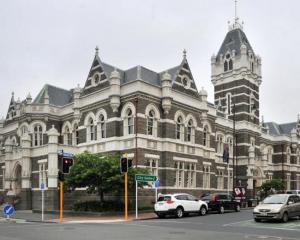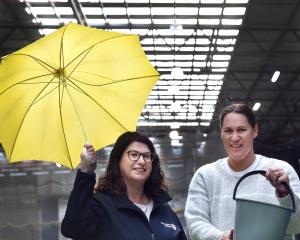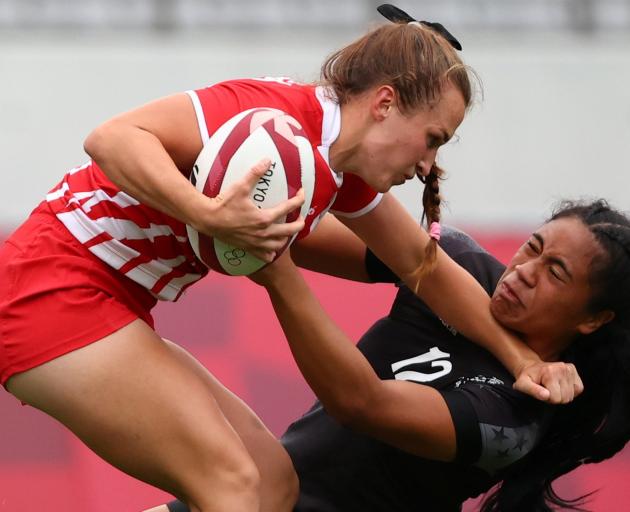
ALENA SAILI
In 2016, high schooler Alena Saili was glued to the TV.
Watching the final of the Rio Olympics women’s sevens between Australia and the Black Ferns, the sporty teen realised it was something she wanted to pursue.
‘‘Seeing those girls play really inspired me,’’ she said.
Five years later, the 22-year-old was on the paddock in Tokyo, part of the gold medal-winning New Zealand team.
Japan was a long way from her Southland roots, but it was her upbringing in the deep South that began her journey to Olympic glory.
Born in Wellington, her family moved to Invercargill shortly afterwards.
Her mum was also a sevens player, and she was surrounded by women’s rugby as she grew up.
‘‘I’d be trying to run beside them, trying to get involved.’’
Her love of sport was fostered at Southland Girls’ High School, where she played netball, rugby and touch.
‘‘Anything you name, I had a go at it,’’ she said.
She played for the school’s first XV from year 9 right through to year 13, but playing in a high school sevens tournament made her realise she enjoyed that form of the game the most.
She was selected for the Black Ferns Sevens in her first year out of high school.
After living at home for the first year, she packed her bags and moved to Tauranga, where she has lived and trained since.
She achieved her dream this year, after being selected for the 12-strong squad for Tokyo.
But, she said, she still sometimes felt like that kid watching the final on TV.
‘‘I couldn’t believe that I was at the Olympics, to be honest.’’
Not only did she get to play at the Olympics, but the team dominated the competition and claimed gold.
She felt lucky to have been part of the game at a time when women’s rugby had come along in leaps and bounds.
‘‘The last Olympic cycle, the team had gone through a lot of stuff off the field that they had to figure out, what was going wrong, they know that they don’t want it to get back to that.
‘‘The thing that I really love about our team is the culture they’ve created for us.’’
She was hoping to head into teaching or coaching in the future.
‘‘It’s just crazy to think that I’m part of the programme now and I can help build that legacy that comes with being on the team.
‘‘I’m really privileged to be in this position that I am to actually inspire kids, boys and girls, to play and have a crack at the Olympics.’’
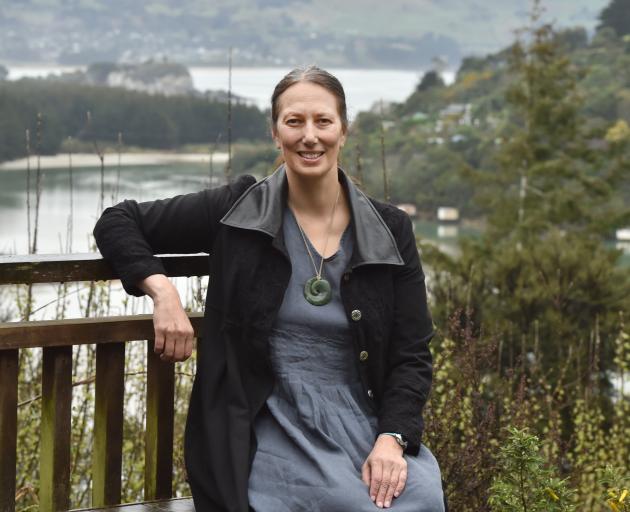
Reading the works of Witi Ihimaera and Patricia Grace was a ‘‘big lightbulb moment’’ for trailblazing academic Jacinta Ruru (Raukawa, Ngati Ranginui, Pakeha).
But despite being named the first Maori law professor in New Zealand, the 46-year-old Purakaunui resident never had plans to enter the legal sphere.
Growing up in Glenorchy, Queenstown and Cromwell, she didn’t know many people who had gone to university.
But her parents had that as an aspiration for her and her two siblings.
Her ‘‘big lightbulb moment’’ was in what was then the fifth form, when for the first time, her English teacher gave her class books by Maori authors to read.
‘‘I could see and feel and hear a Maori voice and see that it was taken seriously in our English class.
‘‘Those stories really gave me the strong impetus to pursue higher education, to better understand our country Aotearoa.’’
She took that desire to learn about her roots to the University of Otago, where she began studying politics and Maori.
That course of study did not satisfy her desire to learn more about Te Tiriti o Waitangi. But law did.
She went on to do her master’s before getting a job at the university.
‘‘I just love being in a university environment, being a tertiary teacher, having that opportunity to work with a whole range of amazing students coming from many different backgrounds across the country, coming in and wishing to study law for many different reasons, and having that opportunity to be part of their lives and learning.’’
In 2016 she became New Zealand’s first Maori law professor, a title that said a lot about the lack of Maori appointed to roles in the tertiary sector, she said.
‘‘I was really proud to be the first Maori professor appointed, but also I just see the travesty amongst all that as well.
‘‘While I have amazing colleagues, and I adore all of my law colleagues and they’ve done an enormous amount to support me, it has also been a really lonely experience from a cultural perspective.’’
Prof Ruru is at present on a 12-month research break, working on several projects.
Those include a book about Maori law, which she is working on with a small team including New Zealand’s first Maori Supreme Court Justice, Joe Williams.
She is also part of a group of Maori legal academics working on a project to change the way law is taught in Aotearoa, to recognise pre-colonial Maori laws and enhance the understanding of New Zealand law.
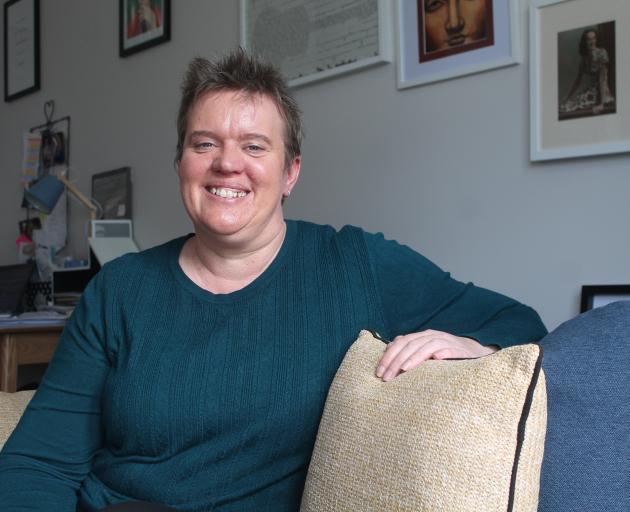
Rebecca Amundsen just wanted to help brighten up her neighbourhood.
Twenty years ago, the Whanganui native moved to Invercargill with her partner so he could attend the Southern Institute of Technology.
After getting involved in charity work and event organising, the 43-year-old became interested in issues facing the Glengarry suburb after her husband moved into an office in the area about 2010.
The pair became part of a group working on community rejuvenation — buildings and public spaces weren’t being looked after, and many shops were empty.
Some of that involved working with the Invercargill City Council.
‘‘Me, in my naivety, just rocked up to council and said ‘hey, we’re from the Glengarry community and we want to do this cool stuff on land you guys own, can you help us’.
‘‘I was kind of surprised by how resistant they were, at the time, to doing anything.’’
After struggling against the council, she decided if you can’t beat ‘em, join ‘em.
She stood in a by-election in 2012, but was unsuccessful.
But at the 2013 election she was elected.
‘‘I was pretty shocked and surprised,’’ she laughed.
‘‘But I also felt like obviously the things I campaigned on, were clearly things that resonated with people in terms of council needing to be more community-orientated.’’
During her first term, she was one of only two women on the 13-person council. They were also both the youngest councillors.
‘‘I sometimes refer to my first term on council as getting on a bus, and just being driven around everywhere. You didn’t have a choice about where you got to see or what you got to do, other people made all those decisions, you just sat on the bus and went for a ride.’’
Towards the end of that term, she wanted to see the council become more diverse.
She ran events to give people information about what being a councillor was all about, and to encourage younger people to run for council.
Some of the people who went along to those events ended up getting elected in 2016.
She has been a councillor ever since, and has also served as deputy mayor.
As well as her council duties, Cr Amundsen is a strong advocate for Southern women.
She is a member of KIND Women, a group that began in 2018.
The idea started with a pitch to host former prime minister Helen Clark for an event in Invercargill. The overwhelming popularity of her talk made the group realise there was plenty of demand for events focused on women.
Last month, the group had planned to host the Kick It Women’s Festival, featuring a range of events, talks and workshops aimed at inspiring and empowering Southern women.
Unfortunately, the Covid-19 outbreak scuppered the festival.
But KIND Women’s ideals of ‘‘kicking in the door’’ and standing up for women remain.
‘‘Change doesn’t happen if we just ignore bad behaviour or inappropriate behaviour.
‘‘Women need to be kind to themselves, and to other women as well.’’
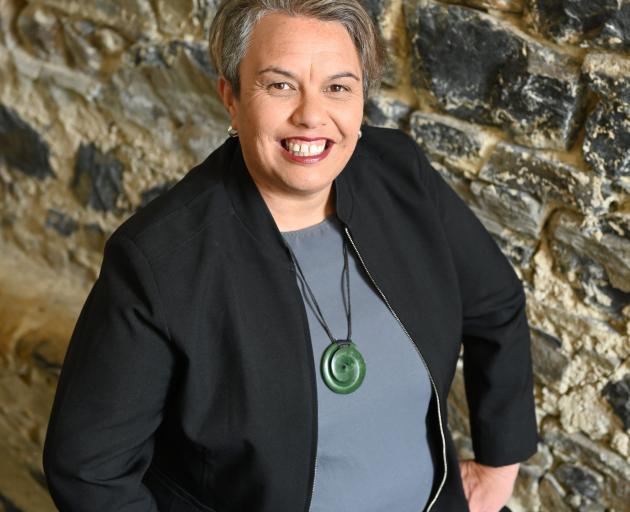
Heidi Renata (Ngapuhi, Pakeha) grew up surrounded by brothers, and her parents treated them all the same.
It didn’t matter to them if their children were girls or boys, they had the same opportunities and the same responsibilities.
That attitude is something Ms Renata (45), of Dunedin, has taken into her business, teaching and mentoring work.
Growing up in Milton in the 1970s and 1980s, she learned her strong work ethic from the age of 11 when she started helping with the family business.
But school, she admitted, was more interesting for the social aspects than the academic side.
She never knew what she wanted to do when she grew up.
‘‘The landscape felt a little bit more limited in our options, we were kind of predetermined where we might end up going, and I didn’t really fit into too many of those boxes.’’
She ended up working for telecommunications giant Vodafone for 13 years, before branching out into a new sphere.
She and her brother, Steven, started INNOV8HQ, a business hub and collaborative work space, in Dunedin in 2016.
It was one of the first privately owned, Maori owned co-working spaces in Aotearoa.
After Covid-19 reared its head, the pair decided to adapt their business towards being an organisation supporting leadership and entrepreneurship.
A lot her work revolved around mentoring and working with rangatahi (young people) to help them reach their potential.
‘‘We started seeing more rangatahi coming into our space and it was creating a sense of belonging and network, but that was an unconscious thing,’’ she said.
‘‘I had no expectation that would become something so critical for our youth.’’
Ironically for the women who wasn’t a big fan of exams at school, Ms Renata has also joined the New Zealand Qualifications Authority panel for tertiary education as a Maori representative.
‘‘My role within that is to support that transformative process where tertiary are able to better support Maori pathways and make it more encouraging.’’
For young women in particular, she had strong advice about not being limited by their own mental barriers.
‘‘I think it’s very easy for us to become distracted by all the messages that are coming through social media, and we get caught up in all that stuff.
‘‘But we actually get to pick and choose what we listen to and what we watch, so make it something that’s going to keep your heart full and your energy higher.’’
She wanted girls to be willing to give anything a go.
‘‘There are often wahine out there supporting those coming through.’’

Growing up on a high country station and developing a love of whitewater kayaking, Megan Longman knew how rewarding a love of the outdoors could be.
The 35-year-old took that love of physical activity into her career as physiotherapist, a field she has worked in for 14 years in Alexandra.
But the vast majority of people she came across enjoying outdoor activities such as mountain biking were men, and there were very few young girls.
She began to think about the barriers girls faced in getting into the outdoors.
‘‘As a generalisation, girls and women tend to give something a go if they’re pretty confident they can already do it quite well.
‘‘Boys and men, on the other hand, they might think, ‘oh yeah, I can do 20 or 30% of that so I’ll give it a go’.
‘‘So worries about competence, and about slowing the group down, these sorts of things are probably barriers.’’
After years of dreaming of ideas, she and friend Kim Froggatt came up with a programme to change that trend and empower young Central Otago women.
Ironically, they did so while out on a bike ride.
In late 2018 they began a pilot programme called Journeys, which involved taking eight year 7 girls on outdoor mountain biking and walking adventures.
They then received a year of funding, mentoring and support through Sport New Zealand’s Innovations for Women and Girls programme, which helped them grow the project into a charitable trust.
Journeys now has 13 trained local instructors, and at the start of this year a programme had 42 girls taking part.
It has built self-confidence, created social connections and, importantly, provided some outdoor fun.
Thousands of hours of work had gone into the programme, but those hours were well spent, she said.
‘‘It’s incredibly rewarding, especially living in a small community where we’re really in touch with so many different families and all the schools.
‘‘And it’s such a privilege to work with young people, we just love wandering down the street and bumping into some of the Journeys girls and having a connection with them.’’ She had big dreams for the future of Journeys.
The team was building a leadership programme, and working on what that would look like.
The curriculum was also being worked on. As well as the practical skills involved in outdoor activities, the team was looking at other aspects such as self confidence, resilience and self-worth.
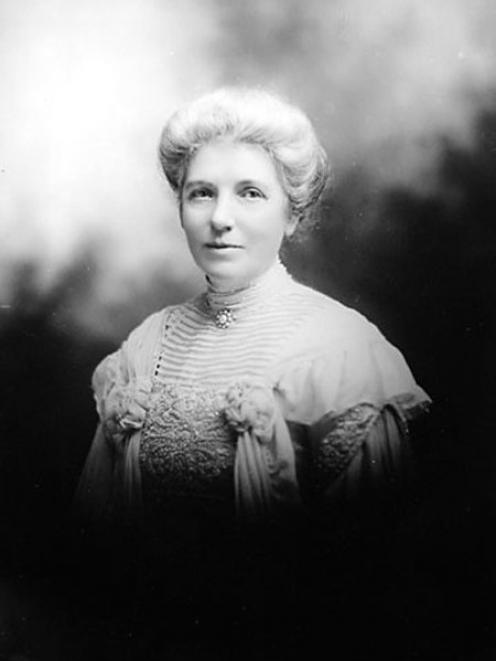
New Zealand became a world leader in 1893 when Lord Glasgow signed a new Electoral Act into law.
It became the first self-governing country in the world to give women the right to vote in parliamentary elections.
In most other democracies, women did not win the right to vote until after World War 1.
However, it was a hard- fought victory, the culmination of years of work by suffragettes such as Kate Sheppard. Southern women also had a major role in the battle.
Helen Nicol, a significant leader in the suffrage movement, helped to establish the Women’s Franchise League in Dunedin, which was then New Zealand’s largest city.
Through their efforts, Dunedin contributed more signatures to the three pro-suffrage parliamentary petitions than any other part of the country.
Ms Nicol is one of six suffragettes memorialised in the Kate Sheppard National Memorial, a sculpture on the banks of the Avon River in Christchurch.
Advertisement
Comments
What concerns me is the narrative at the end of this article
NO country can be called Democratic until it has Universal Suffrage
Until that point, they are democracies developing out of a class system, typically of landowners and citizens in general.
https://en.wikipedia.org/wiki/Universal_suffrage provides information into that progress
Jock Phillips book, A Blokes Country provides NZ context
Maori men gained the vote in 1867 making them equal to landowners, regardless of gender
All men in 1879 and women in 1893, just 14 years later
You needed to have a fixed address, so sailors didn't get the vote until the 1900's
In 1893 Otago was the largest population center @158,675 with Auckland at @138,100
In 1791 the UK removed the criteria of religion and race
Universal Suffrage was granted after the slaughter of WWI in 1918
The narrative of men oppressing women or any other oppressor/oppressed based on identity groups is divisive
Even between siblings, difference remain as to interests / outcome, for a multitude of reasons
Strong, healthy societies provide equal opportunity for the individual to flourish, recognising that we are all different but still limited by our bodies









